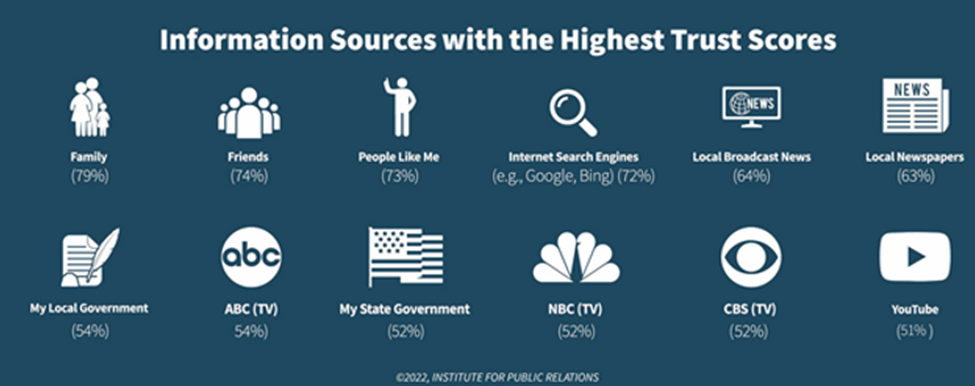The employer's role in fighting disinformation
- Emily Emanuelsen

- Aug 29, 2024
- 3 min read
Whether the phrase “fake news” makes your eyes roll or your blood boil, Americans of all political affiliations believe it’s a big problem. And now, AI has introduced “deepfakes.”
A November 2021 Morning Consult survey of 2,200 Americans revealed that 87 percent believe false news or disinformation is a problem in the United States, viewing it as a bigger issue than disease outbreaks, gun violence and terrorism.
Disinformation vs. misinformation
Before continuing, let’s define disinformation. What is the difference between disinformation and misinformation? In short: intent. Misinformation comes from someone who is, well, misinformed. They are unknowingly sharing false information, while disinformation is deliberately deceptive.
AI has made disinformation even more difficult to detect with the increasing prevalence of “deepfakes.” Deepfakes are videos or images of people that have been altered to look like other people. These can be convincing and hard to tell apart from a legitimate video clip or photo. A few strategies for detecting deep fakes are to look for unnatural coloring, lighting that does not make sense in the context of the photo/video or lack of imperfections, such as hair without flyaways or frizziness. AI programs also have had trouble recreating hands and fingers—for example, zooming in on a hand in a photo may reveal too many digits.
Determining a trustworthy news source
If we want to attempt to understand how disinformation spreads, we should examine where people are getting their news. CNN? Fox News? C-SPAN? The study found that the top three information sources with the highest trust scores were not official news outlets at all, but groups labeled Family, Friends, and People Like Me. When people aren’t sure which media outlets to trust, they lean into their personal connections and inner circle to either confirm their beliefs or present accurate information. Local news is generally deemed more trustworthy than national news outlets.
Employers as news sources
Participants had low expectations for employers as news sources—38 percent said they had “some” trust in their employers to provide them with accurate information. Considering how much time we spend in the office or the presence of our coworkers, this low number is an interesting figure when compared to the top three trustworthy news sources. Family, friends and coworkers/bosses are all people we know on at least a somewhat personal level, and “people like me”—although they may be strangers—are entities we can feel a connection to, as well. Based on this data, it would seem the familiar people in our inner circles are our favorite sources of information. So why not employers?
Employers are certainly people who are close to us (at least in proximity and/or in daily life) and (hopefully) people we are proud to align ourselves with, and yet their trust score was considerably lower than other personal connections—what can be done to improve trust in employers regarding disinformation?
What organizations can do to combat disinformation
Employers can increase trust and loyalty among their employees (which can help with the “great resignation”) by becoming reliable sources of information. Here are a few action items for employers looking to do that.
Train employees on media literacy and actively campaign against disinformation. If a relevant news story is circulating, take time to discuss it with your employees and talk about what is true and what is not. Be vocal in your support of pro-journalism state and congressional bills.
Review your company’s ad portfolio and pull support from biased sources that spread disinformation. You do not want to be aligned with them! Instead, support organizations and nonprofits that support media literacy, combat disinformation and serve as fact-checkers. Fund ads in local papers or on a local news website.
Serve as an employee information resource. Support local journalism by purchasing subscriptions to local papers or news sites for your employees.
Vet images and videos that are supplied as evidence. Make sure your marketing team is familiar with the methods of how to spot deepfakes.
This post was inspired by the webinar “Disinformation in Society,” presented by the Institute for Public Relations’ (IPR) President & CEO Tina McCorkindale, Ph.D., and Senior Director of Strategic Initiatives Anetra Henry. You can view the full report that was discussed in the presentation here.
.png)

